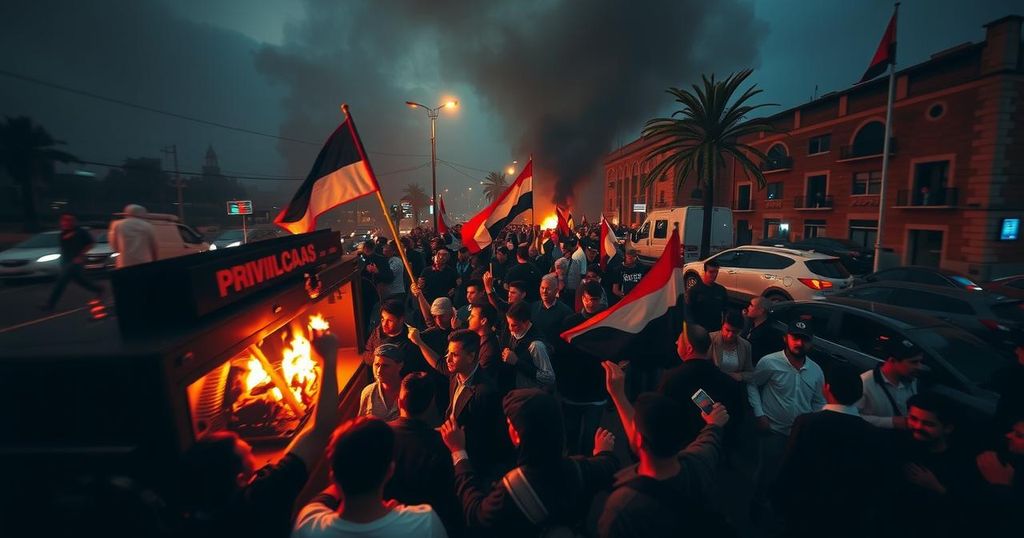Escalating Tensions: A Closer Look at Israel and Iran’s Military Confrontations
Tensions between Israel and Iran have escalated with Israel conducting airstrikes on Iranian military targets in response to a missile attack from Iran. This cycle of retaliation illustrates the instability in the Middle Eastern geopolitical landscape, highlighting the entrenched animosities and the potential for further conflict.
The escalating tensions between Israel and Iran have manifested in a series of military confrontations, each cycle deepening the longstanding animosity between these nations. The most recent incident occurred on Saturday when Israeli forces executed a strategic series of airstrikes targeting Iranian military installations. This action was a direct response to an earlier missile attack launched by Iran on October 1, which had targeted areas within Israeli territory. The ongoing hostilities illustrate the precarious nature of peace in the region, as both parties remain entrenched in their positions, leading to an unending cycle of retaliation that exacerbates the already volatile situation in the Middle East.
Understanding the dynamics of the Israel-Iran conflict requires insight into historical grievances, geopolitical interests, and the broader implications of their confrontations. Israel and Iran have been adversaries since the Islamic Revolution in 1979 that transformed Iran into a theocratic state opposed to the very existence of Israel. This animosity has been fueled by numerous regional conflicts and the quest for regional dominance, particularly through proxy warfare. The recent escalations indicate a shift in tactics, with both nations exhibiting increased military assertiveness, thereby raising concerns about a potential escalation into a wider conflict involving other regional actors and global powers.
In conclusion, the recent military exchanges between Israel and Iran underscore the fragility of security in the Middle East. This cycle of retaliation not only reflects the deep-rooted animosity between these nations but also poses significant risks for regional stability. The international community must remain vigilant and proactive in addressing these tensions to prevent a broader conflict that could have catastrophic implications for the region and beyond.
Original Source: www.washingtonpost.com




Post Comment